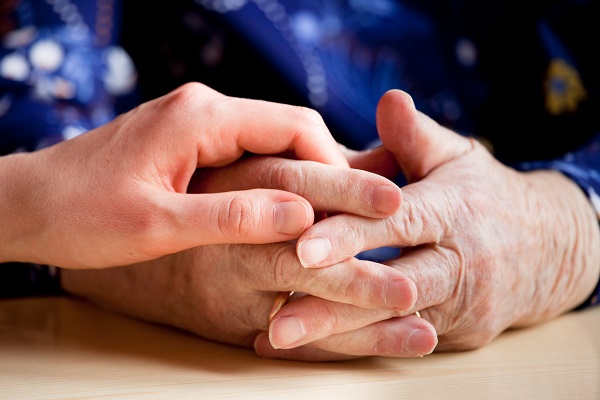Sadly, a local resident, Nancy Yates, recently committed suicide by jumping from her apartment window in St. Pete after apparently suffering from declining health and spirits. The story was a tragic reminder of the risk factors that elders face for depression and their relative high rates of suicide.
Please take some time to read or bookmark our past articles on Signs and Symptoms of Depression in Elders and How to Help a Depressed Elder. We encourage you to share this information to spread the word about this vital but too often overlooked issue.
If you recognize some of these symptoms in someone you know, what can you do? Often, the person will not admit to feeling depressed but instead complains of physical symptoms or specific life problems. Your attempts to talk about possible depression may be rebuffed. Many times the person is worried about the stigma of depression or that admitting to it may mean losing control/independence. Particularly when you are a concerned neighbor or friend, you may not feel like there is much you can do and may hesitate to “interfere”. In the Tampa Bay area, where many elders have retired from somewhere else and families may be physically distant, concerned neighbors, friends and professionals are vital connections for the elder’s well-being.
If you have concerns that an elder may be depressed, here are some tips about how to approach the situation to get the person help:
- Be supportive (and maybe a little pushy). A depressed person often withdraws from social activities and feels hopeless. Your attempts to be supportive or invite the person to do things may be turned away. Do not let this discourage you. Try to check in on the person and continue offering invitations and expressions that you care. Breaking the pattern of inactivity and isolation can reduce depression and hopelessness.
- Ask about the lesser known symptoms of depression. When trying to get a handle on what is going on, ask the person if he/she is having difficulty sleeping or new aches and pains. You may notice confusion or changes in attitude and behavior versus expressions of sadness.
- Encourage the person to make a doctor’s appointment. You may not be able to convince someone to see a psychiatrist or counselor, but they may be more open to explaining the recent physical and other symptoms to their doctor. Elders are much more likely to seek help for physical symptoms. Unfortunately, even when elders sought help from a doctor shortly before committing suicide, signs were often missed (20 percent of elderly people who later commit suicide see a doctor the day they die, 40 percent the week they die and 70 percent in the month they die). At the same time, doctors and other healthcare professionals are working hard to better screen patient for these issues, and geriatric specialists in particular will know the signs to look for and may be a gateway to help. Additionally, if you are actively involved in the person’s medical care, you may be able to alert the doctor to your concerns. You can send a letter, email or fax to the doctor’s office before the appointment, outlining the symptoms/concerns you have seen and asking the doctor to screen and sensitively address these as appropriate.
- Address the person’s worries (including the unspoken) and offer hope. You may want to share a story about someone you know who was going through similar issues and got help. It may be useful to specifically address underlying concerns that people often have but don’t state, such as a feeling that declining health or cognitive abilities will lead to being forced in to a nursing home or having no quality of life. It can be difficult to convince a depressed person that there is hope; it may be better to demonstrate (by telling the person about specific resources, sharing stories or showing them how you or someone you know has been helped). If the person has financial worries or thinks there is nothing out there to help, you can do some general research to find resources to offer. You may need to encourage the person to make some follow up calls together (or ask if you can do it on their behalf), rather than simply offering a list of numbers. Depression often affects motivation.
- Call in a professional. Because it may be difficult to convince the person to make an appointment with a mental health professional, you may want to start with talking to someone yourself. You can do this without breaking the person’s confidence, simply by having a consultation with a care manager about your concerns and discussing approaches. Sometimes it is possible to take the next step, as a care manager can often be pitched as offering concrete help with issues the person will admit are of concern. The person might be willing to have an in-home assessment to see what can be done to help with household issues or health concerns. With the gentle, experienced approach a care manager can often open the door to address the wider issues.
- Know your duty. Under F.S. 415, certain persons are obligated to report suspected elder abuse and neglect. This includes self-neglect when the person may be unable to care for himself and in need of services, or when the person may be harmful to self. Professionals such as medical staff, social workers, care staff and bank employees are mandatory reporters under Florida’s statutes. The Florida abuse hotline is 1-800-96ELDER (35337).
Contact Aging Wisely at 727-447-5845 for questions, concerns or to schedule a consultation. We also offer educational materials on issues like depression which you can share with friends and clients.

 Popular Downloads
Popular Downloads


 Get Our Newsletter!
Get Our Newsletter! Mission Statement
Mission Statement

